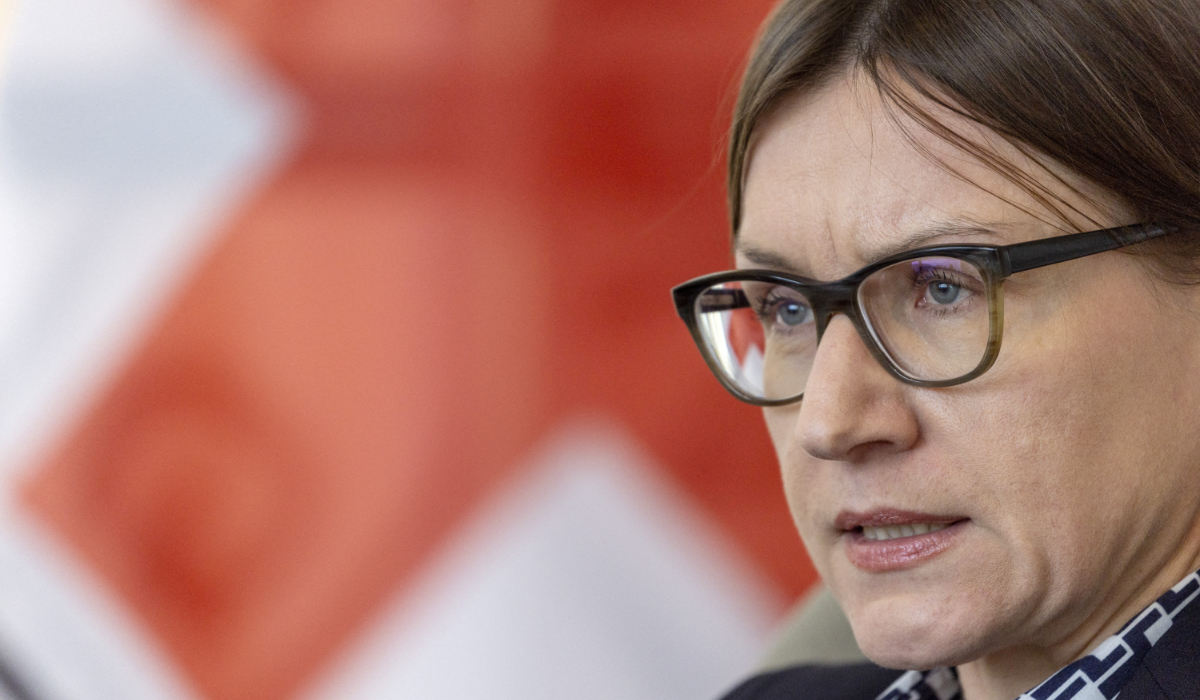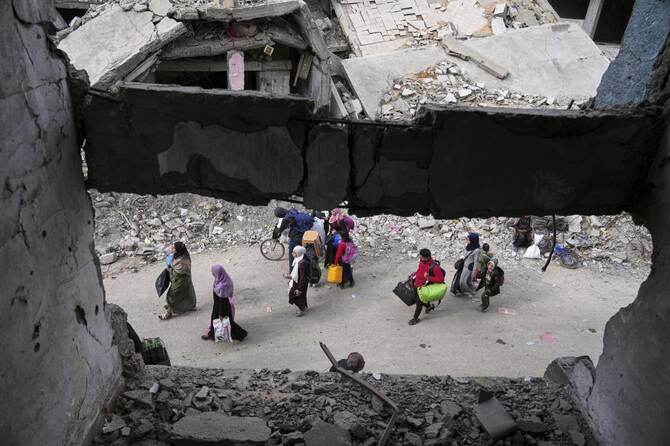GENEVA: The president of the Red Cross described the humanitarian situation in Gaza on Friday as “hell on earth” and warned that its field hospital will run out of supplies within two weeks.
“We are now finding ourselves in a situation that I have to describe as hell on earth ... People don’t have access to water, electricity, food, in many parts,” Mirjana Spoljaric said at the International Committee of the Red Cross headquarters in Geneva.
No new humanitarian supplies have entered the Palestinian enclave since Israel blocked the entry of aid trucks on March 2, as talks stalled on the next stage of a now broken truce. Israel resumed its military assault on March 18.

International Committee of the Red Cross (ICRC) President Mirjana Spoljaric Egger. (REUTERS)
Israel’s Ministry of Foreign Affairs said 25,000 aid trucks had entered Gaza in the 42 days of the ceasefire and that Hamas had used the aid to rebuild its war machine, an allegation that the group has denied. Spoljaric said supplies were running critically low.
“For six weeks, nothing has come in, so we will, in a couple of weeks, run out of supplies that we need to keep the hospital going,” she said.
The World Health Organization said supplies of antibiotics and blood bags were dwindling fast. Twenty-two out of 36 hospitals in the enclave are only minimally functional, Dr. Rik Peeperkorn told reporters in Geneva via video link in Jerusalem.
It is extremely dangerous for the population to move, but it’s especially also dangerous for us to operate.
Mirjana Spoljaric, ICRC president
The Red Cross president also raised concerns about the safety of humanitarian operations.
“It is extremely dangerous for the population to move, but it’s especially also dangerous for us to operate,” Spoljaric said.
In March, the bodies of 15 emergency and aid workers, including eight members of the Palestinian Red Crescent, were found buried in a mass grave in southern Gaza.
The UN and Red Crescent accused Israeli forces of killing them.
The Israeli military said on Monday that an initial investigation showed that the incident occurred “due to a sense of threat” after it said it had identified six Hamas militants in the vicinity.
Spoljaric called for an immediate ceasefire to release the remaining hostages held by Hamas and to address the grave humanitarian issues in Gaza.
Israel began its military campaign in Gaza in October 2023.
Since then, more than 50,800 Palestinians have been killed and much of the territory has been reduced to rubble.
























